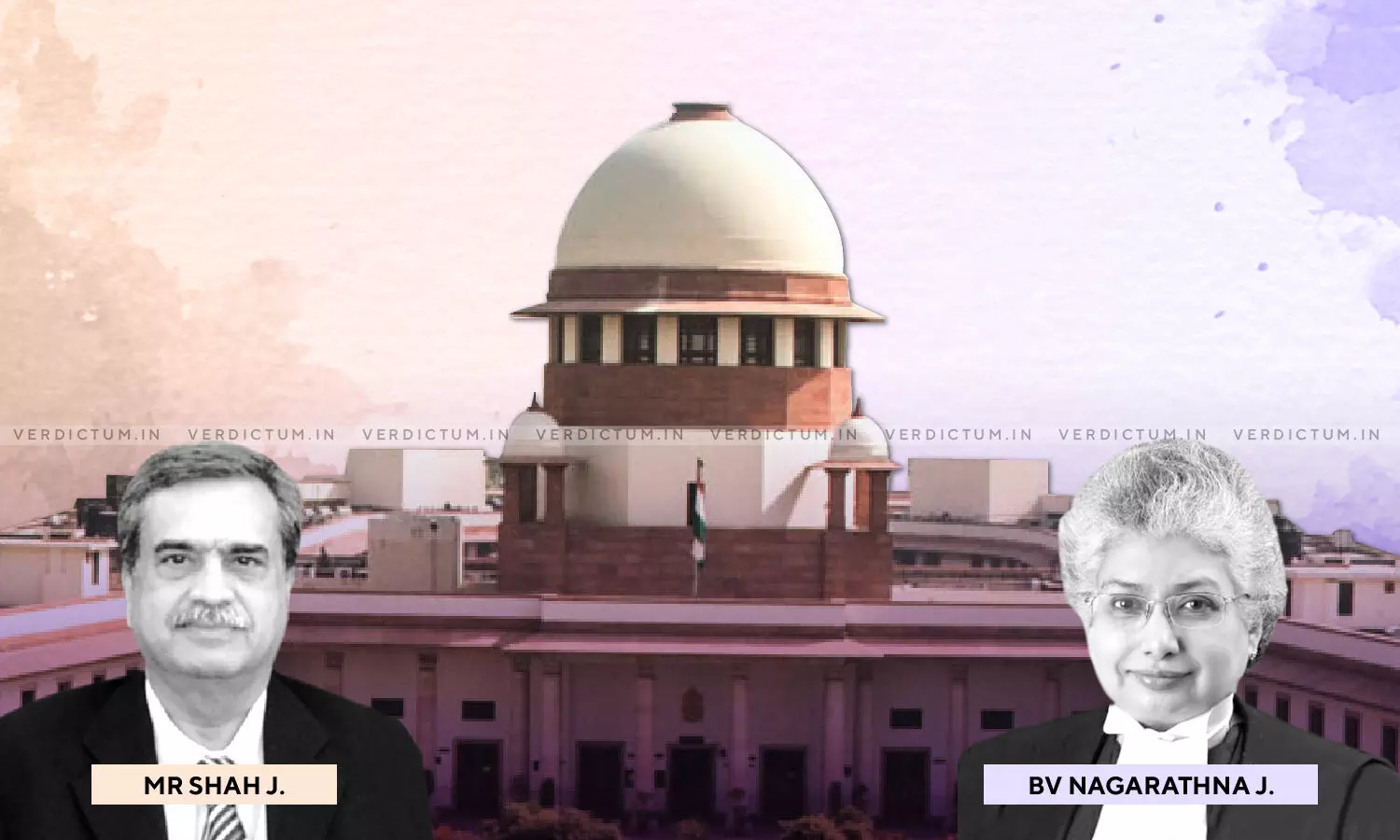
High Courts Cannot Entertain Plea Of Executing Award Passed By Arbitral Tribunal: Supreme Court Reiterates
 |
|The Supreme Court has held that High Courts cannot entertain plea seeking execution of the award passed by the Arbitral Tribunal/Court, when such award is to be executed by initiating an execution proceeding before the concerned Executing Court.
The Bench of Justice MR Shah and BV Nagarathna held thus "We disapprove the entertaining of such writ petitions under Article 226 of the Constitution of India to execute the award passed by the learned Arbitral Tribunal/Court, without relegating the judgment creditor in whose favour the award is passed to file an execution proceeding before the competent Executing Court."
The facts of the instant case were that the land of the respondents–original land owners came to be acquired by the National Highways Authority of India under the provisions of the NHAI Act. The arbitrator enhanced the amount of compensation. The award passed by the Arbitrator was challenged by the NHAI.
As there was no stay of the award passed by the Arbitrator, the respondent herein – original land owners instead of filing the execution petition to execute the award declared by the Arbitrator filed the writ petition before the High Court and prayed for directions/orders directing the NHAI to deposit the amount with the Competent Authority, Land Acquisition and SubDivisional Officer in pursuance of the award.
The High Court disposed of the said petition by directing the appellant – NHAI to deposit the entire amount along with interest with the Land Acquisition Authority. The Court then directed the original writ petitioners – land owners to withdraw 50% of the amount along with interest on filing an affidavit of undertaking that if in the litigation journey, an adverse order is passed against them and they are found to have withdrawn excess amount, the said amount would be redeposited with the authority.
Feeling aggrieved by this Order of the High Court, appellants-NHAI approached the Apex Court.
Additional Solicitor General Aishwarya Bhati, appeared on behalf of the appellants whereas Advocate Shirish K. Deshpande appeared on behalf of original land owners.
The Supreme Court noted that reliefs that were sought by the private original land owners original writ petitioners were in the nature of execution of the award passed by the Arbitral Tribunal/Court.
The Court expressed that the High Court ought not to have entertained the petition seeking the reliefs to execute the award passed by the Arbitral Tribunal/Court, when the award passed by the Arbitral Tribunal/Court should have been executed by initiating an execution proceeding before the concerned Executing Court.
"Apart from the fact that the award dated 12.06.2018 has been challenged by the NHAI by initiating proceedings under Section 34 of the Arbitration Act which are reported to be pending, the High Court ought not to have entertained the writ petition under Article 226 of the Constitution of India seeking the reliefs to execute the award passed by the learned Arbitral Tribunal/Court, when the award passed by the learned Arbitral Tribunal/Court is to be executed by initiating an execution proceeding before the concerned Executing Court. But, by passing the impugned order/directions the High Court has virtually converted itself into Executing Court.", the Court observed.
The Court held that when the original writ petitioner had alternative remedy to execute the award passed by the Arbitral Tribunal/Court, by initiating an appropriate execution proceeding before the competent Executing Court, the High Court ought to have relegated the original writ petitioners to avail the said remedy instead of entertaining the writ petition.
The Court noted that "If the High Courts convert itself to the Executing Court and entertain the writ petitions under Article 226 of the Constitution of India to execute the award passed by the Arbitral Tribunal/Court, the High Courts would be flooded with the writ petitions to execute awards passed by the learned Arbitrator/Arbitral Tribunal/Arbitral Court."
The Court disposed of the petition by directing NHAI to deposit 50 % of the compensation amount, with the Executing Court within a period of four weeks to be released to the land owners.
The Court further directed NHAI to deposit the balance amount of compensation as per the Award to be passed under Section 34 of the Arbitration Act with the Executing Court within 4 weeks.
Cause Title- National Highways Authority of India v. Sheetal Jaidev Vade & Ors
Click here to read/download the Judgment